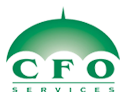EUROZONE economic activity slipped back into decline this month as a second wave of the coronavirus swept across the continent, heightening expectations for a double-dip recession, surveys showed on Friday.
Renewed restrictions to control the pandemic forced many businesses in the bloc’s dominant service industry to limit operations, and nearly 90pc of economists polled by Reuters last week said there was a high risk the coronavirus resurgence would halt the nascent eurozone economic recovery.
“The eurozone PMI confirms that the second wave of the coronavirus is weighing more and more on the economy.
A double-dip in the fourth quarter is becoming more likely at this rate,” said Bert Colijn at ING.
IHS Markit’s Flash Composite Purchasing Managers’ Index (PMI), seen as a good gauge of economic health, fell to 49.4 from September’s final reading of 50.4, indicating contraction.
The news leaves Christine Lagarde and the European Central Bank (ECB) with a key question ahead of its meeting on Thursday: will the ECB deliver more stimulus in December?
There’s no imminent pressure to act since emergency stimulus was ramped up not long ago.
But the case for more action is getting stronger with each passing day.
Many economists expect the ECB to ramp up quantitative easing in December when its latest forecasts are due. Preliminary October eurozone inflation data this week may also guide investors.
Any signals from the ECB that the outlook has deteriorated would reinforce the case for a December stimulus package – an early Christmas gift to markets perhaps.
Eurozone bond yields inched lower on Friday as a key set of business surveys in France and Germany showed the extent of the impact of the second wave of Covid-19 infections in the bloc’s two biggest economies.
France, which has been particularly badly hit by a resurgence of cases of the novel coronavirus, saw business activity contract in October, according to the monthly PMI survey.
Germany’s PMI survey showed that its manufacturing sector – known as the engine room of Europe – rebounded strongly, but its services sector was in contraction in a two-tier economy.
“It’s not surprising given the local restrictions imposed in major cities in France and elsewhere, and the majority of investors are expecting more action from the ECB by the year end,” said Commerzbank rates strategist Rainer Guntermann.
He said he expects the central bank to announce an extension and more flexible application of its asset purchase programme by the end of the year.
German 10-year bond yields, the benchmark for the bloc, inched lower on Friday to -0.57pc while French 10-year borrowing costs dropped a similar amount to -0.29pc.
Both bond yields were coming off one-week highs hit on Thursday, but overall eurozone rates remain close to their lowest levels since March as investors expect the ECB to ramp up stimulus to counter a gloomy economy.
Irish Independent, 26 October 2020

